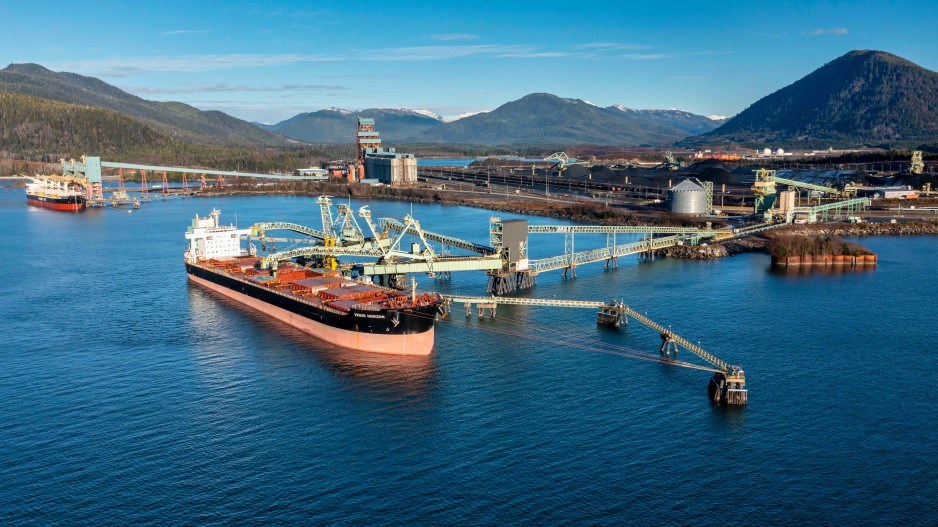Trigon Pacific Terminals says it plans to replace some of its coal exporting capacity with new liquid petroleum gas (LPG) -- propane and butane -- storage and export capacity.
The Trudeau government plans to ban all thermal coal exports by 2030, meaning Trigon – formerly Ridley Terminals -- would lose a major chunk of its current business. It therefore plans to shrink its coal export capacity and add propane and butane storage capacity.
“With the upcoming ban on thermal coal exports starting in 2030, taking advantage of the available terminal capacity and infrastructure combined with our experience handling propane, the Trigon LPG Project simply makes sense,” Trigon CEO Rob Booker said in a press release.
Trigon provides some services for the Ridley Island Propane Export Terminal, but doesn't own it.
Trigon is a consortium that includes AMCI Group, Riverstone Holdings LLC, and the Lax Kw’alaams and Metlakatla First Nations.
The consortium bought the former Ridley Terminals from the federal government in 2019. In 2021, Prime Minister Justin Trudeau announced Canada would ban thermal coal exports by 2030.
Thermal coal still accounts for about a quarter of Trigon’s business. It used to account for at least half. Most of that coal is produced in Alberta.
In 2020, 5.2 million tonnes of thermal coal moved through the port, according to the Prince Rupert Port Authority. Steelmaking coal (also called metallurgical coal) accounted for 5.8 million tonnes. In 2022, thermal coal exports were 2 million tonnes and steelmaking coal 3.6 million tonnes.
"We were as high as six million tonnes of thermal coal, and now we're down to just under two (million tonnes)," Booker said. "Today it's like a quarter of the business."
Propane and butane are some of the fuels produced in the liquids-rich Montney formation of Northeastern СŔ¶ĘÓƵ and there is a demand for these products in Asia. There are existing rail connections that will allow the fuels to be shipped by train from Northeastern СŔ¶ĘÓƵ to Prince Rupert.
Trigon plans to shrink its coal export capacity and add liquids storage and export infrastructure. Eventually, should ammonia ever start being produced in Western Canada, that could be accommodated with a new berth that Trigon is building, at a cost of $165 million. The federal government is helping cover the cost of the new berth with $75 million from Ottawa’s $4.6-billion National Trade Corridors Fund.
Trigon has not disclosed how much the new LPB storage and export infrastructure will cost to build, but hopes to see it built by 2027. The new facility will require liquid fuel storage tanks, pipes and rail car unloading stations.
“The proposed Trigon Pacific LPG Project (Trigon LPG) will create a more diversified, open market LPG supply chain and much-needed additional export capacity, without the need to develop any new land or build a berth,” Trigon said in a news release.
“In repurposing existing infrastructure and developed land, Trigon will add upwards of 120,000 cubic metres of new LPG storage capacity and will provide the lowest cost export opportunity for Canadian propane producers, while maintaining steelmaking coal export volumes.”

